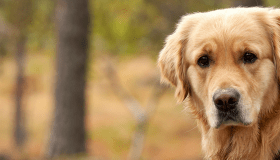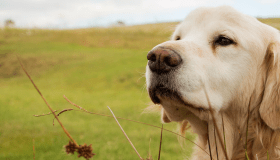
MEDIA ALERT: DENVER/May 8, 2024 — Morris Animal Foundation has announced a new call for research proposals focused on canine aging, age-related diseases, and advancing the overall health and welfare of dogs.
This request for proposals encompasses four award types: Established Investigator, Pilot Study, First Award, and Fellowship Training. The Foundation welcomes proposals leveraging data from the Golden Retriever Lifetime Study.
Fellowship Training grants can encompass any topic and there is an expanded funding opportunity for applicants from historically marginalized groups through its Donor-Inspired Study program for this call.
For all other award types, the Foundation is interested in work on the canine aging process, including physiological changes to the immune system, mitochondrial dysfunction, epigenetic alterations, genomic instability, and stem cell exhaustion.
Interested researchers can find more information on the Foundation’s Grants page, including proposal documents. Applications must be submitted through the Foundation’s portal by the proposal submission deadline of 4:59 p.m. ET, July 17, 2024. Award categories include:
- Established Investigator awards provide funding for research by individuals and teams with a previous record of research and publication. The maximum duration of an Established Investigator Award is 36 months. There is no limit to the budget request. However, we expect the average award to be about $100,000.
- First Award grants assist new faculty in establishing a successful research program. The maximum duration of a First Award is 24 months, and the total budget must be at most $120,000.
- Pilot Award grants fund innovative ideas to accelerate discovery and advance Morris Animal Foundation’s mission. A pilot award can last 12 months and have a total budget of not more than $20,000.
- Fellowship Training grants assist new investigators in launching a successful research career by providing salary support in a quality mentoring environment. A fellowship Training Grant can last up to 24 months, and the total budget cannot exceed $145,000.
All applicants must demonstrate a clear understanding of the health problem, possess sufficient expertise to conduct the study, implement a scientifically sound approach, and consider the overall environmental impact of their research to convince scientific and animal welfare reviewers.
Scientific Advisory Board
- Chiara Adami, DMV, MRCVS, PhD, DACVAA, DECVAA, University of Cambridge, UK
- Carlos Alvarez, PhD, The Ohio State University
- Emily E. Bray, PhD, CAAB, University of Arizona
- Felix Duerr, DVM, MS, Dr. med. vet., CCRT, DACVS-SA, DECVS, DACVSMR, Colorado State University
- Ashley Hartley, DVM, PhD, DACVIM (SAIM), University of Tennessee
- Romy M. Heilmann, DMV, PhD, DACVIM (SAIM), DECVIM-CA (SAIM), MANZCVS (SAM), AGAF, Leipzig University, Germany
- Anne Kimmerlein, DVM, MPVM, DACVPM, VCA Animal Hospitals
- Karen Muñana, DVM, MS, DACVIM (Neurology), North Carolina State University
- Elizabeth Rozanski, DVM, DACVIM (SAIM), DACVECC, Tufts University
- Samantha Schlemmer, DVM, MS, DACVP, University of Georgia
- Xiaolei Tang, MD, MSc, PhD, Long Island University
- Xu Wang, PhD, Auburn University
About Morris Animal Foundation
Morris Animal Foundation’s mission is to bridge science and resources to advance the health of animals. Founded in 1948 and headquartered in Denver, it is one of the largest nonprofit animal health research organizations in the world, funding nearly $160 million in more than 3,000 critical animal health studies to date across a broad range of species. Learn more at morrisanimalfoundation.org.
Media Contact: Kelly Diehl




